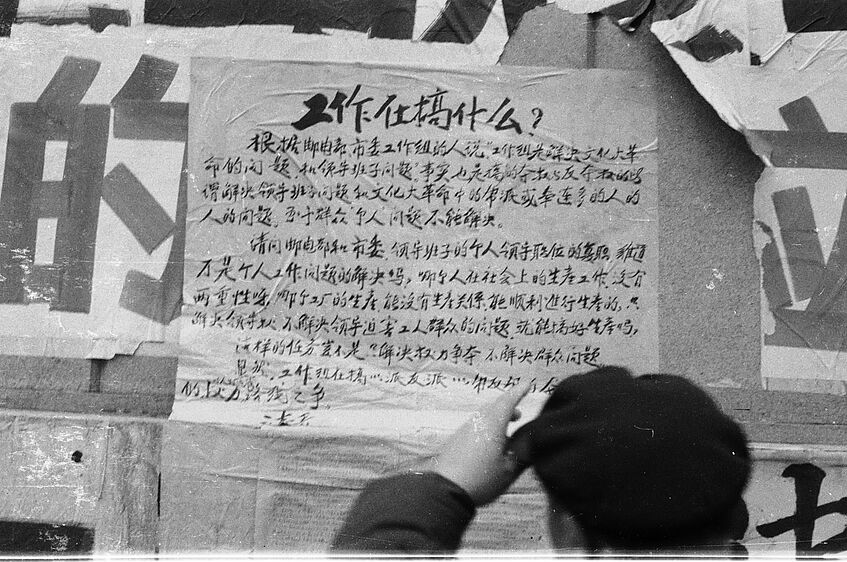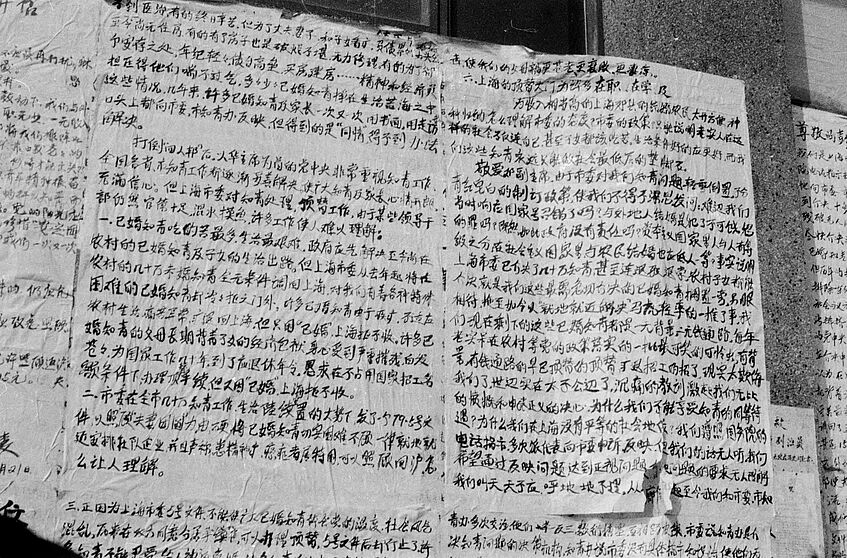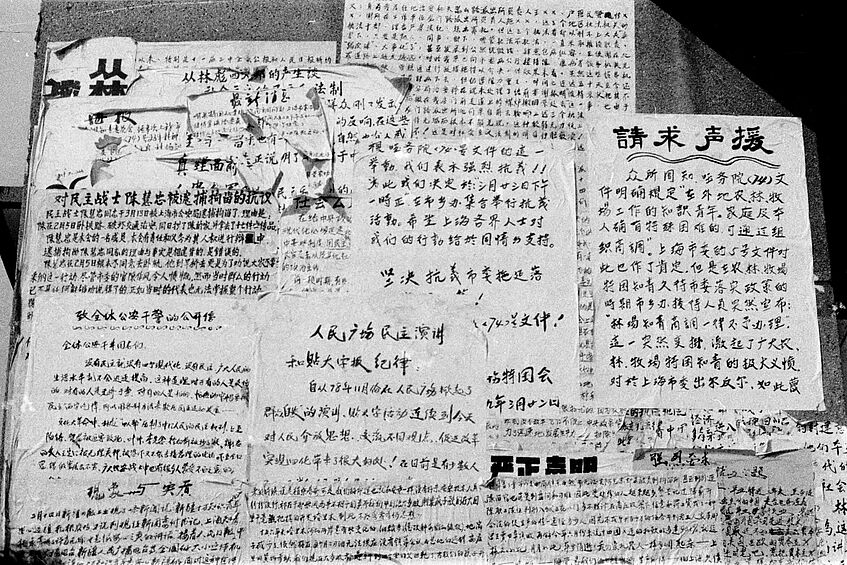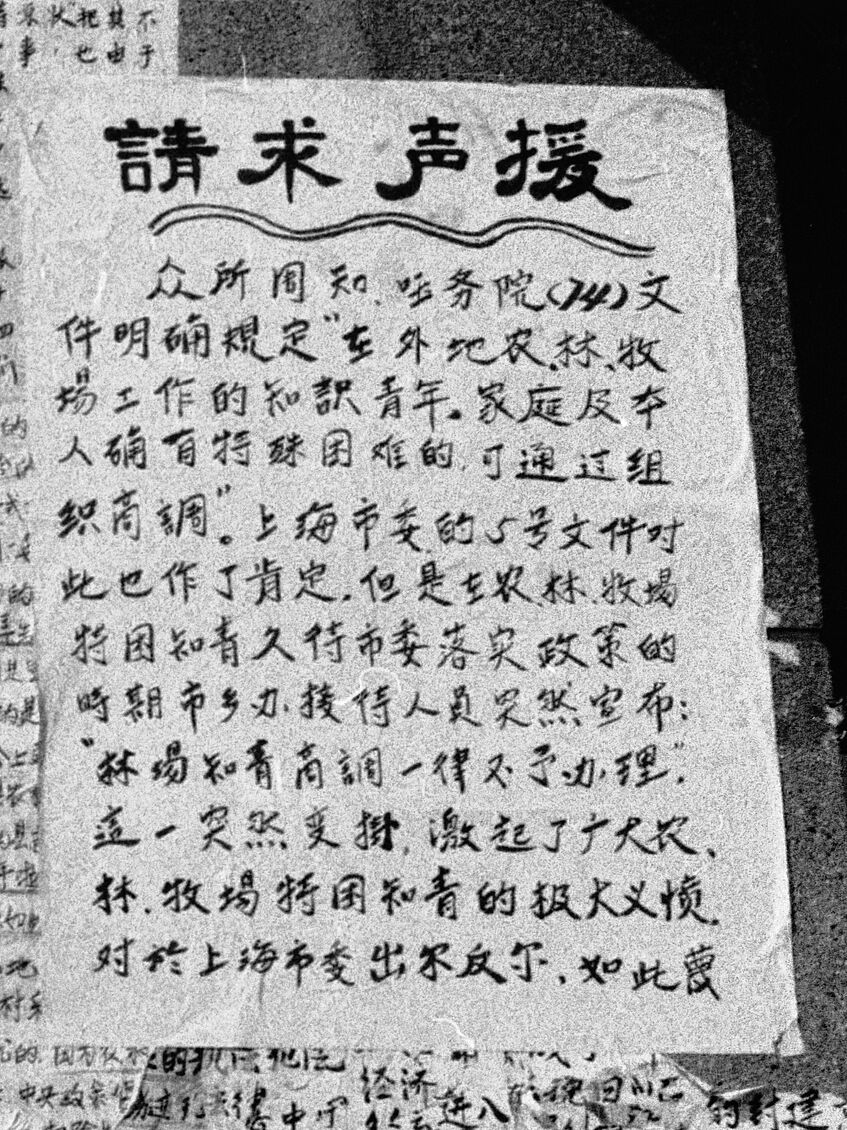Shanghai's Democracy Wall (March 1979)
Shanghai had its own version of the Democracy Wall (like several other big cities in China). It was located at the People's Park near Huaihai Middle Road. The following black and white photos auf big character Posters in Shanghai were provided by the French sinologist Alain Peyraube who visited Shanghai in March 1979.
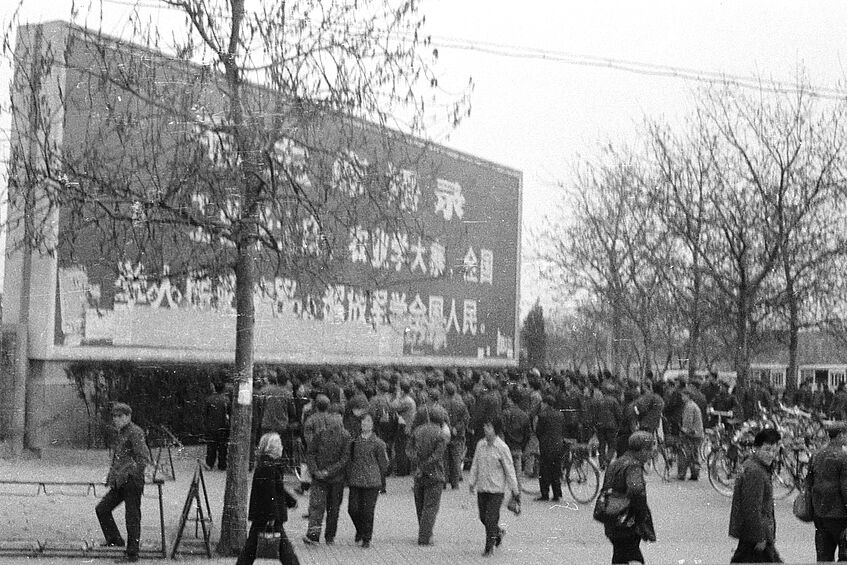
"Dear 'Educated Youth' from Shanghai in Xinjiang:"
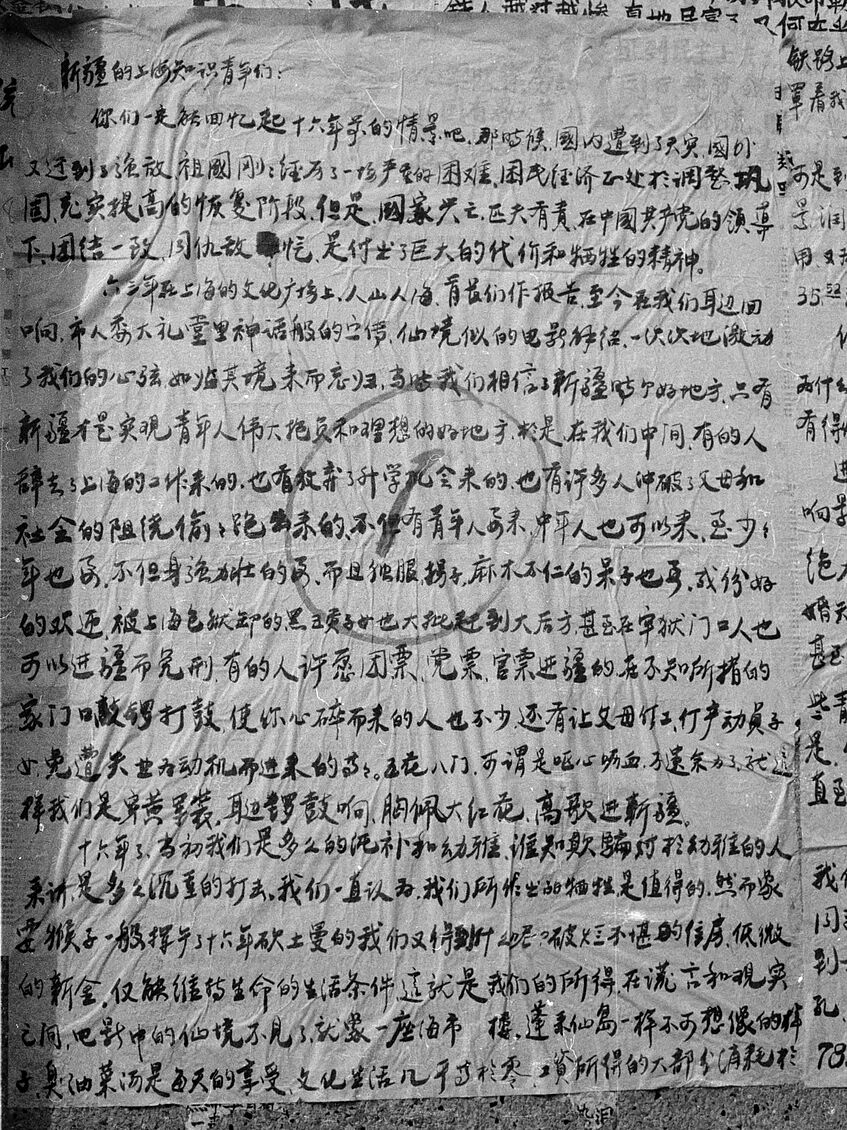
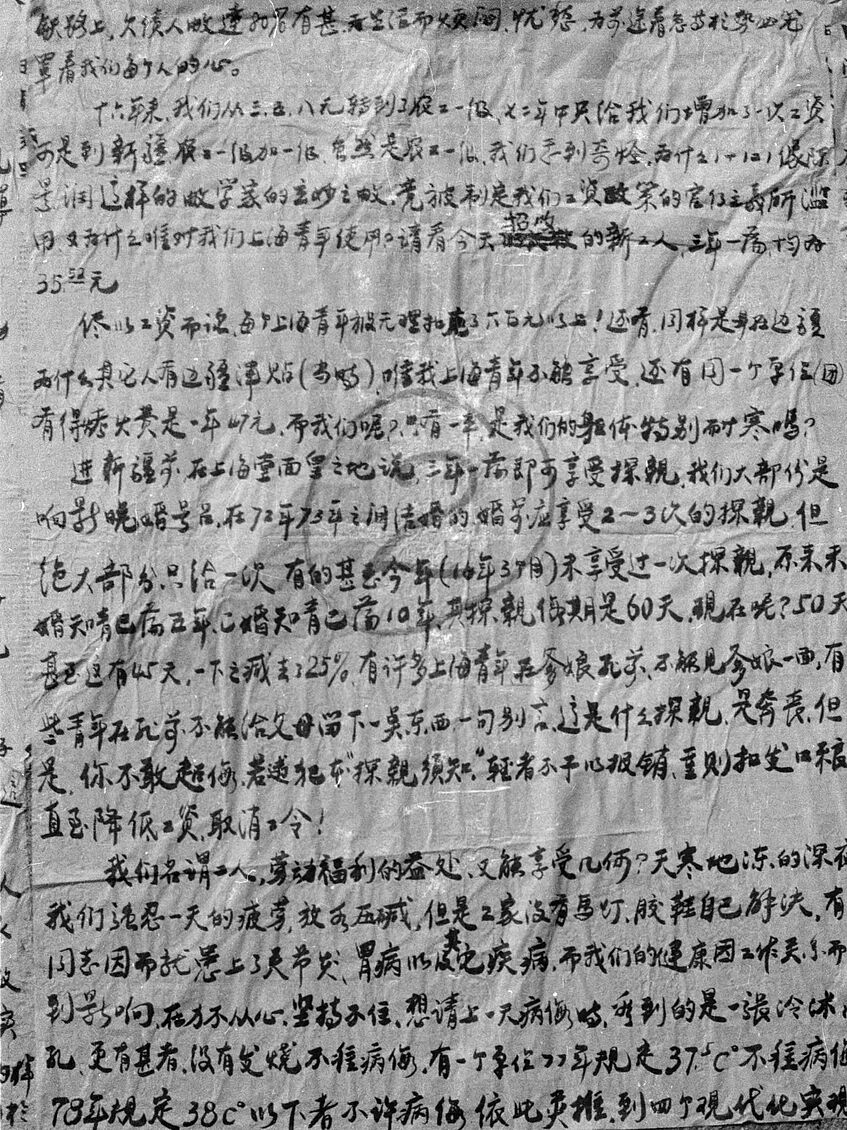
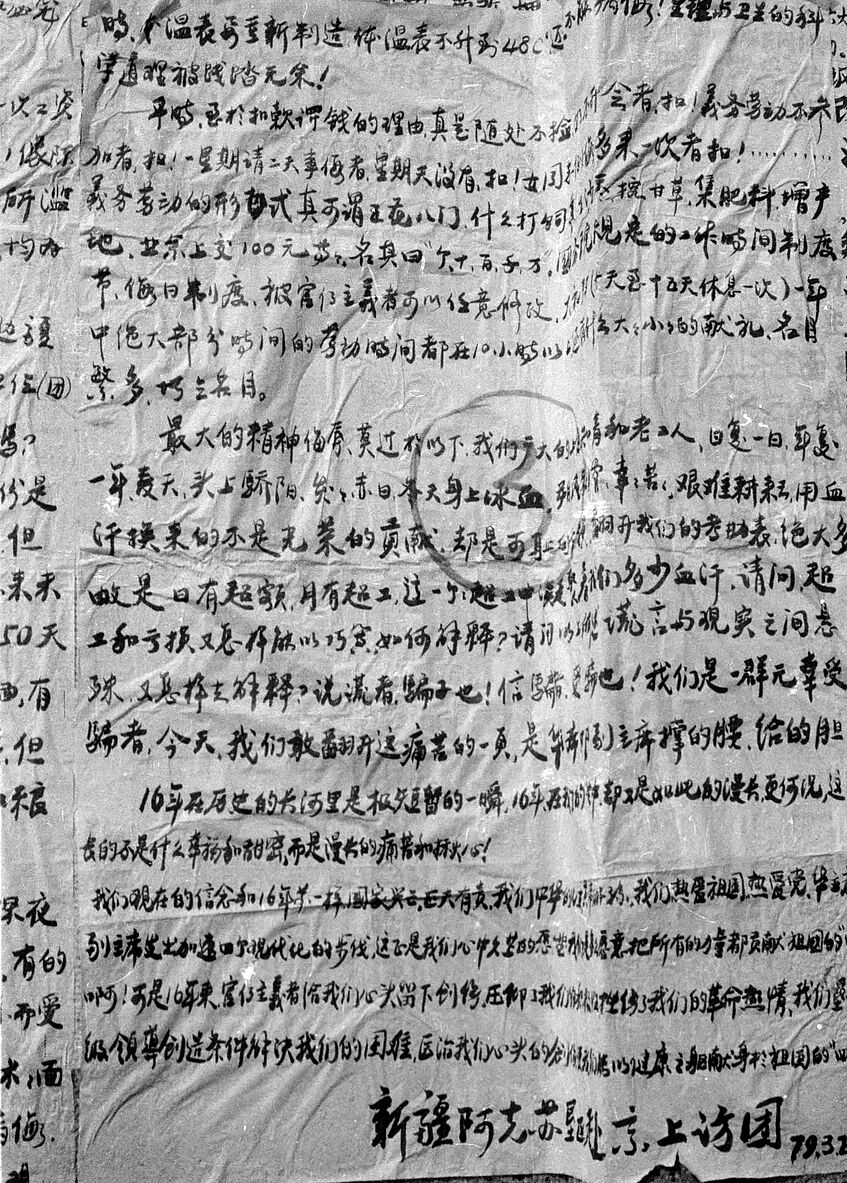
"Petitioners' News in Brief (No. 1)"
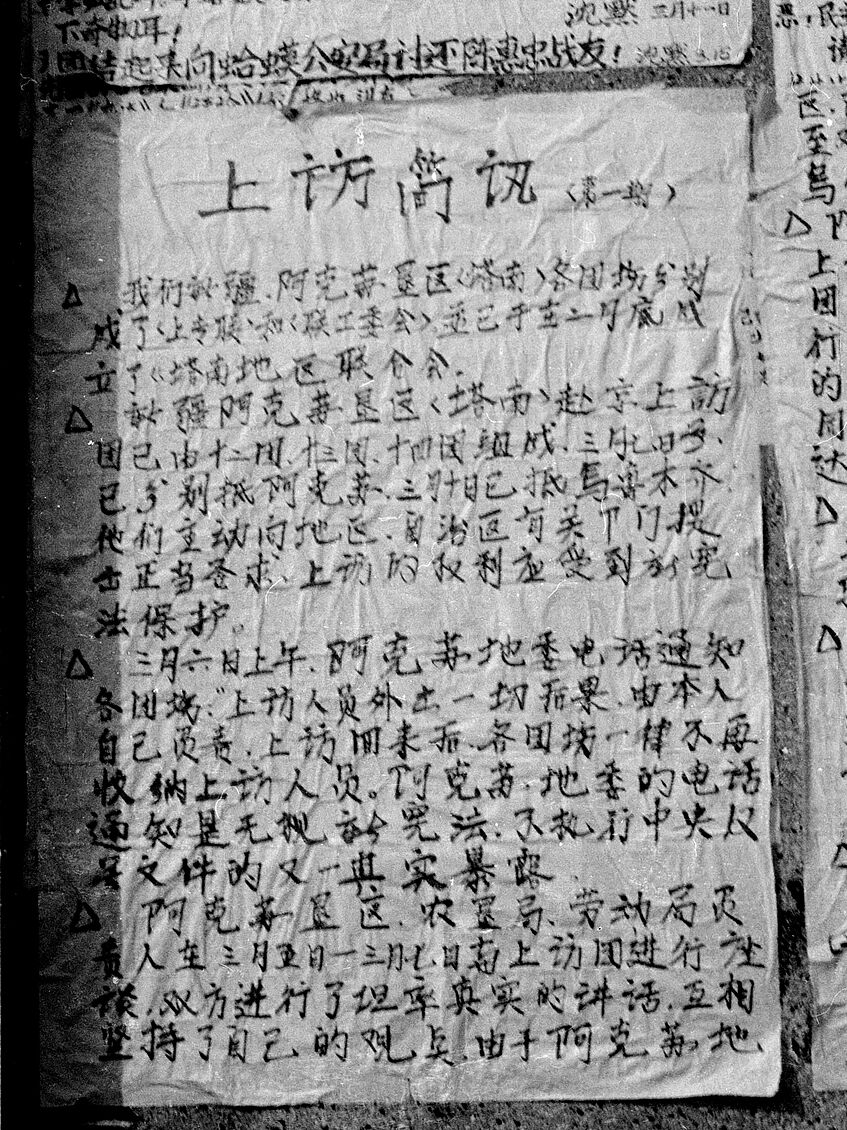
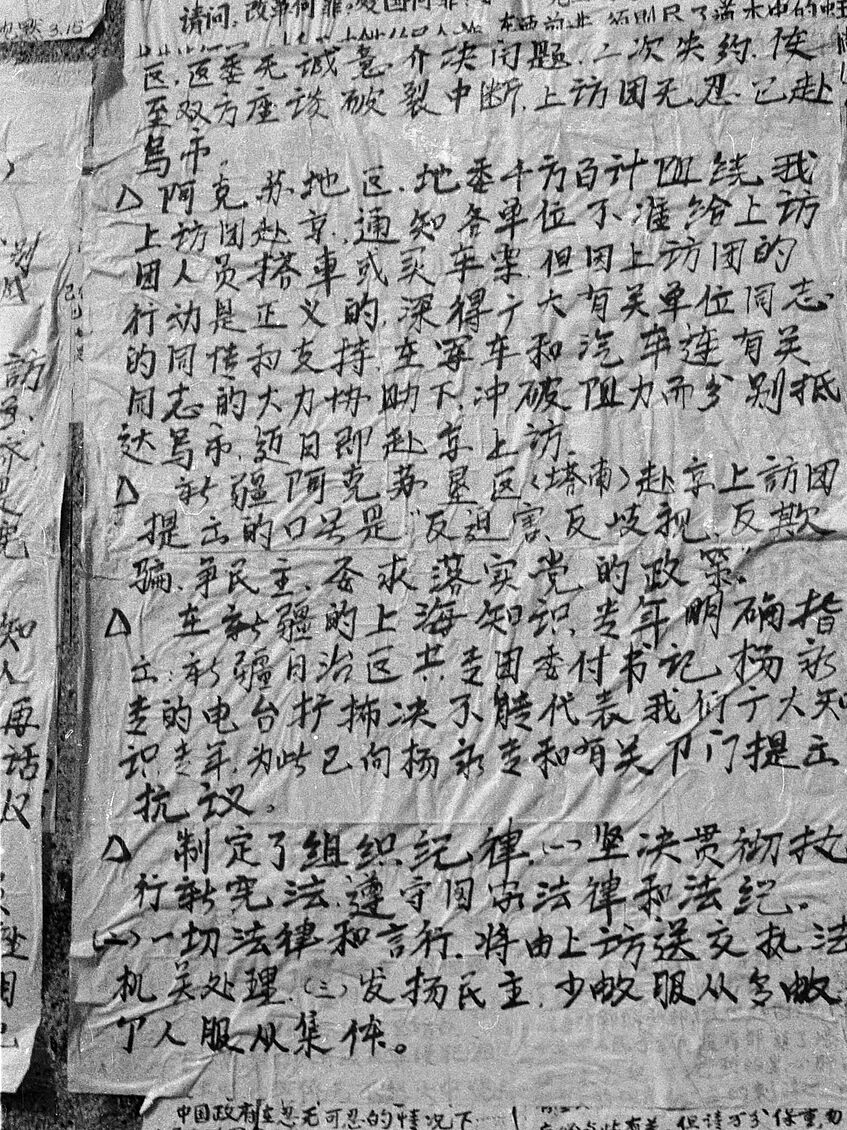
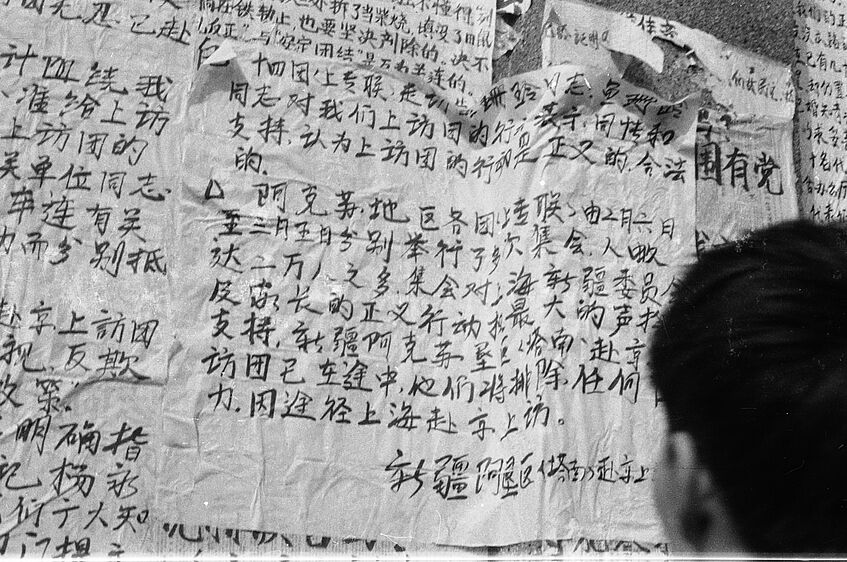
"Open Letter to Chairman Hua Guofeng"
...by a "representative of the petitioners from Shanghai who has been married too early", now wanting to return to the city.
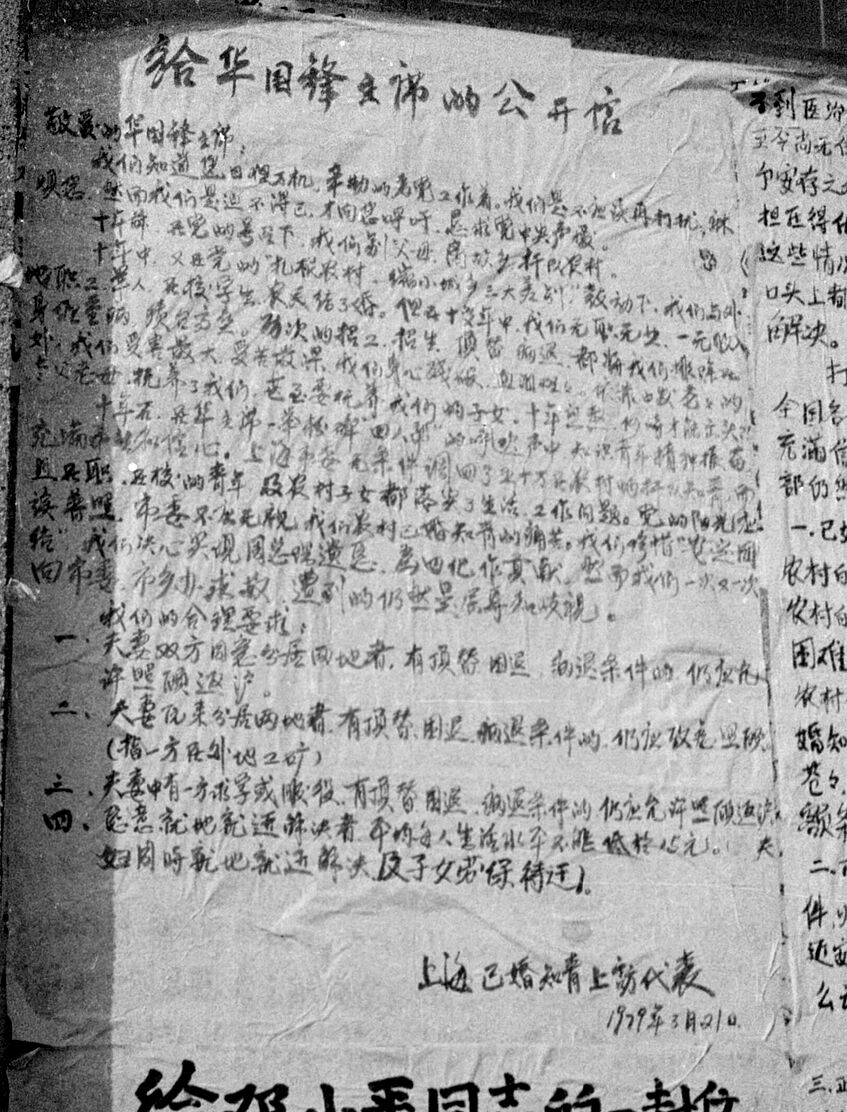
"A Letter to Comrade Deng Xiaoping"
"Educated Youth" who have been sent to remote rural areas in the 1960s complaining about the harsh living conditions.
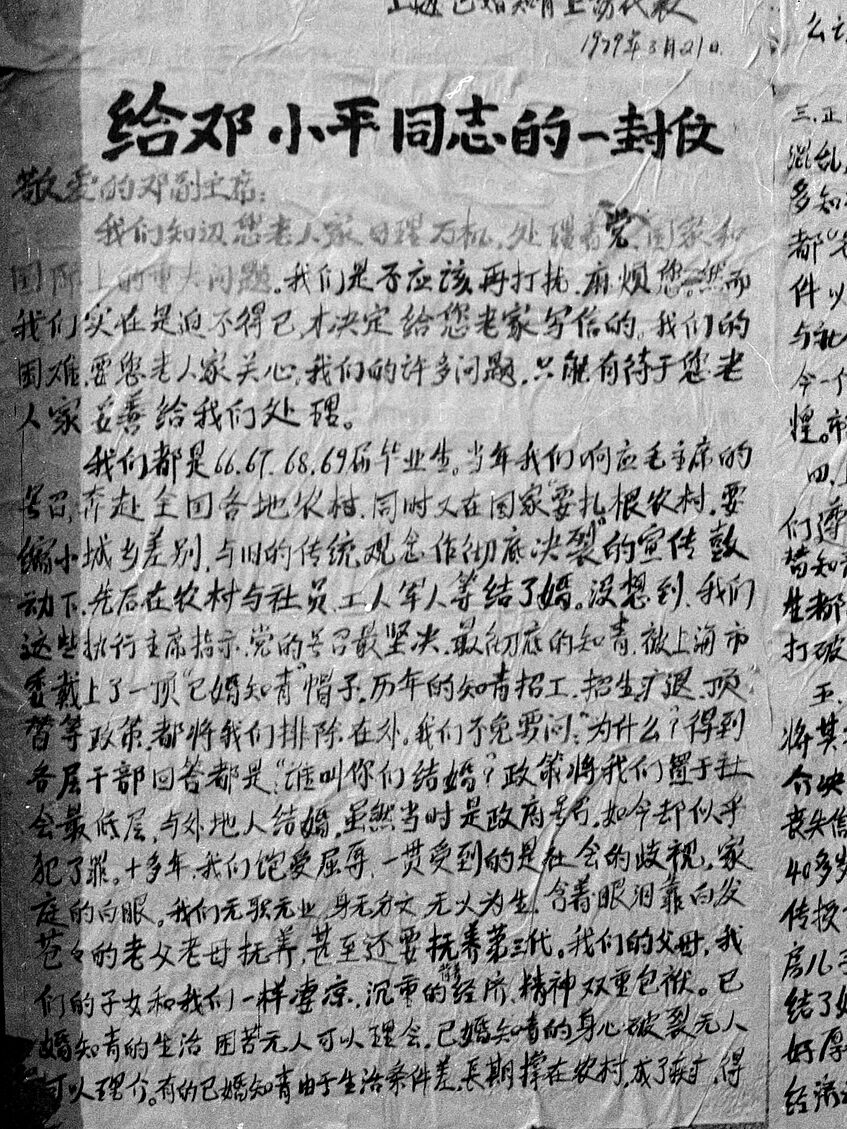
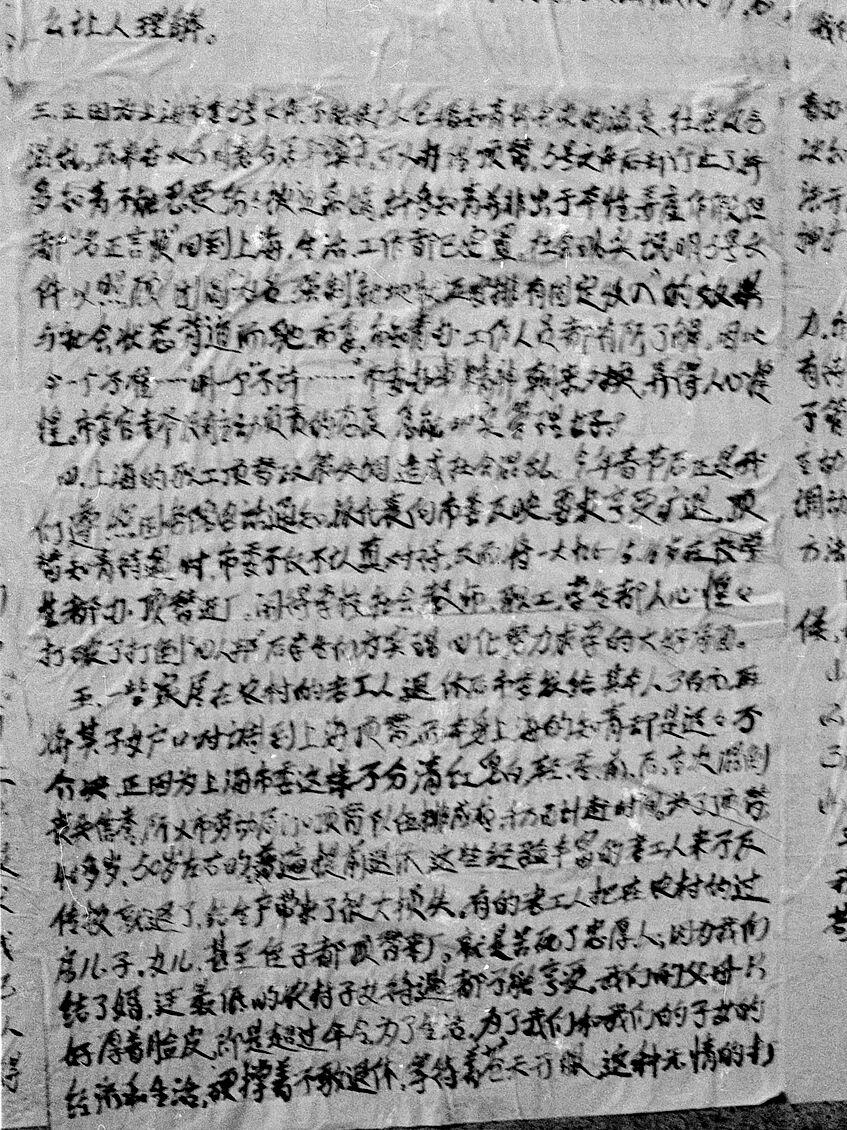
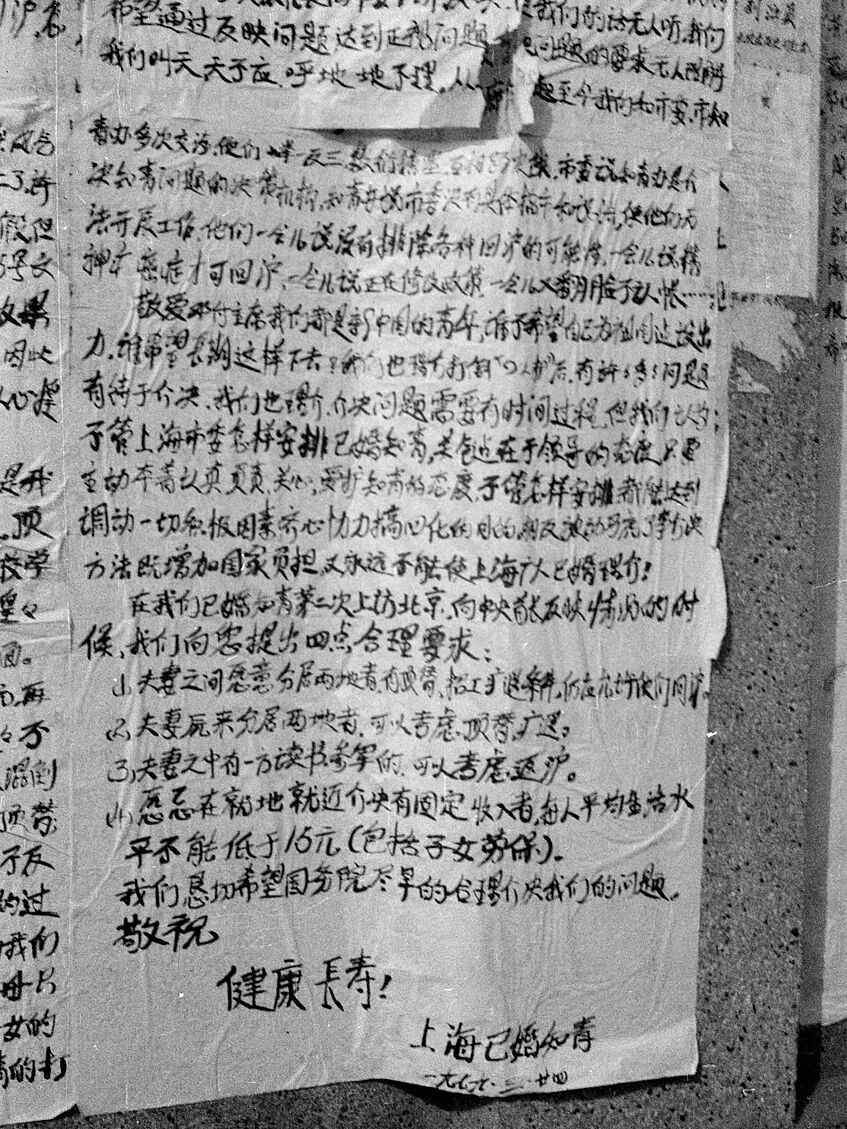
"What Has Happened to Me - Thinking Everyone Is Equal before the Law"
"Please leave for two weeks" - such notices were often attached to the posters, as authors just stuck their new dazibao on the top of others that could then be read only for a few hours or less. Thus the newly won freedom of expression was sometimes harmed by the anarchy of publication.
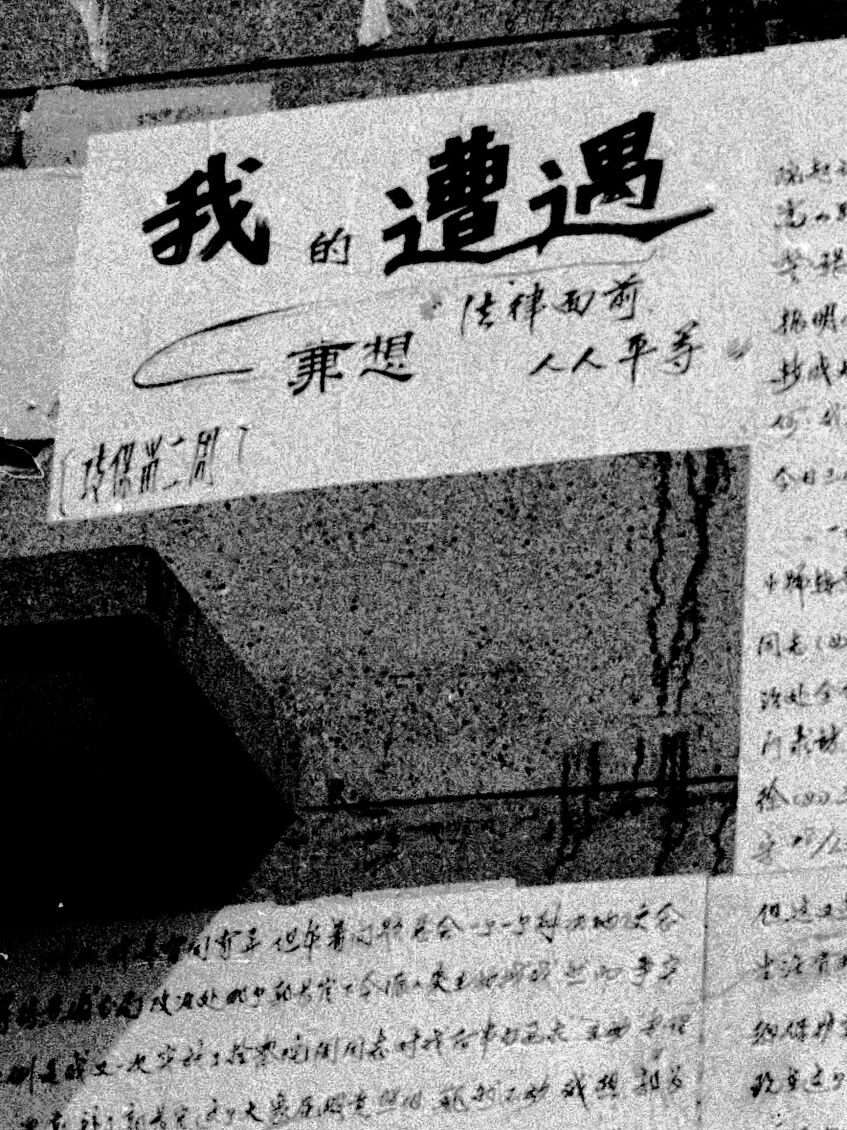
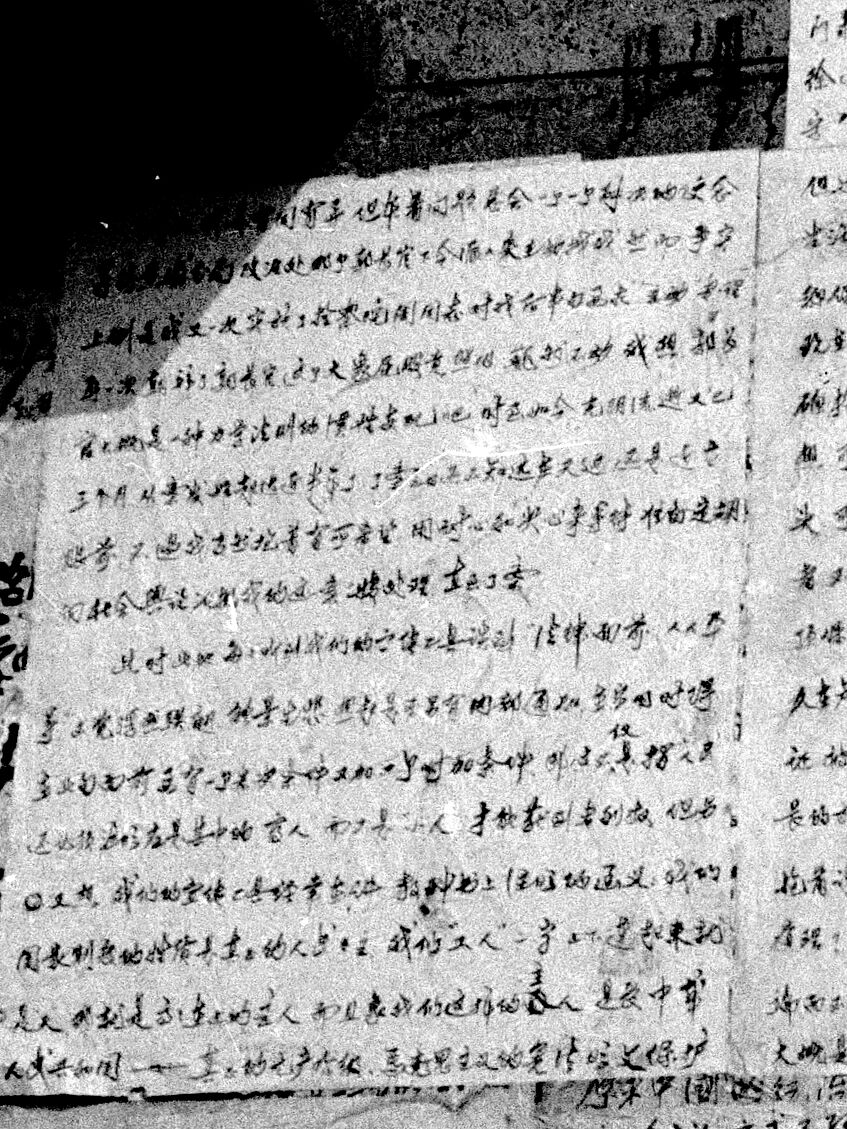
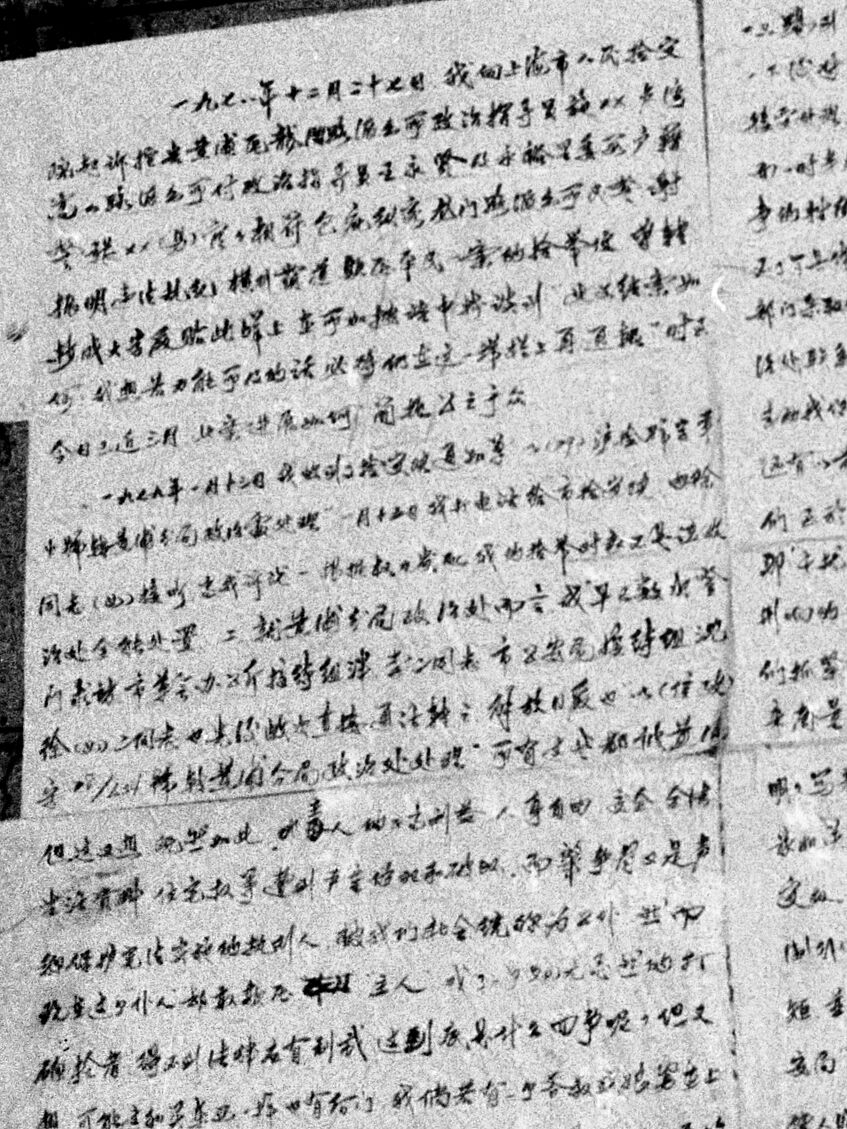
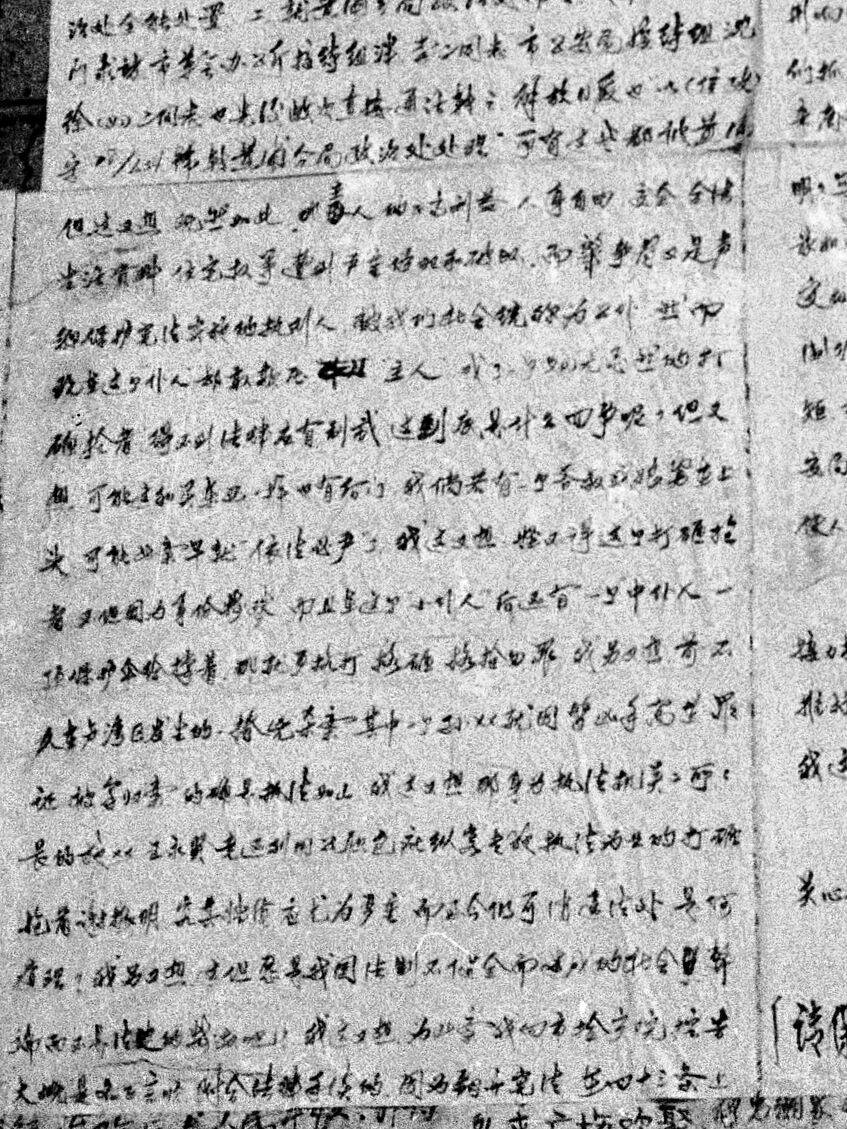
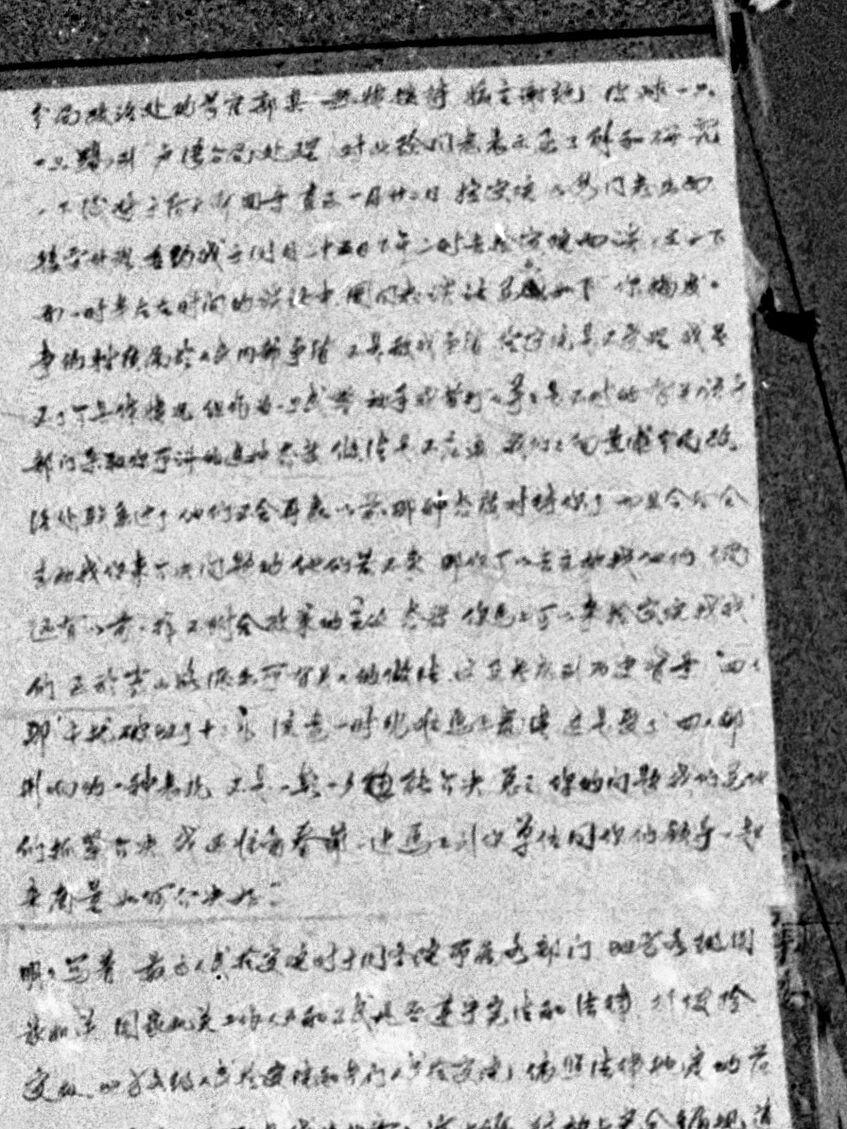
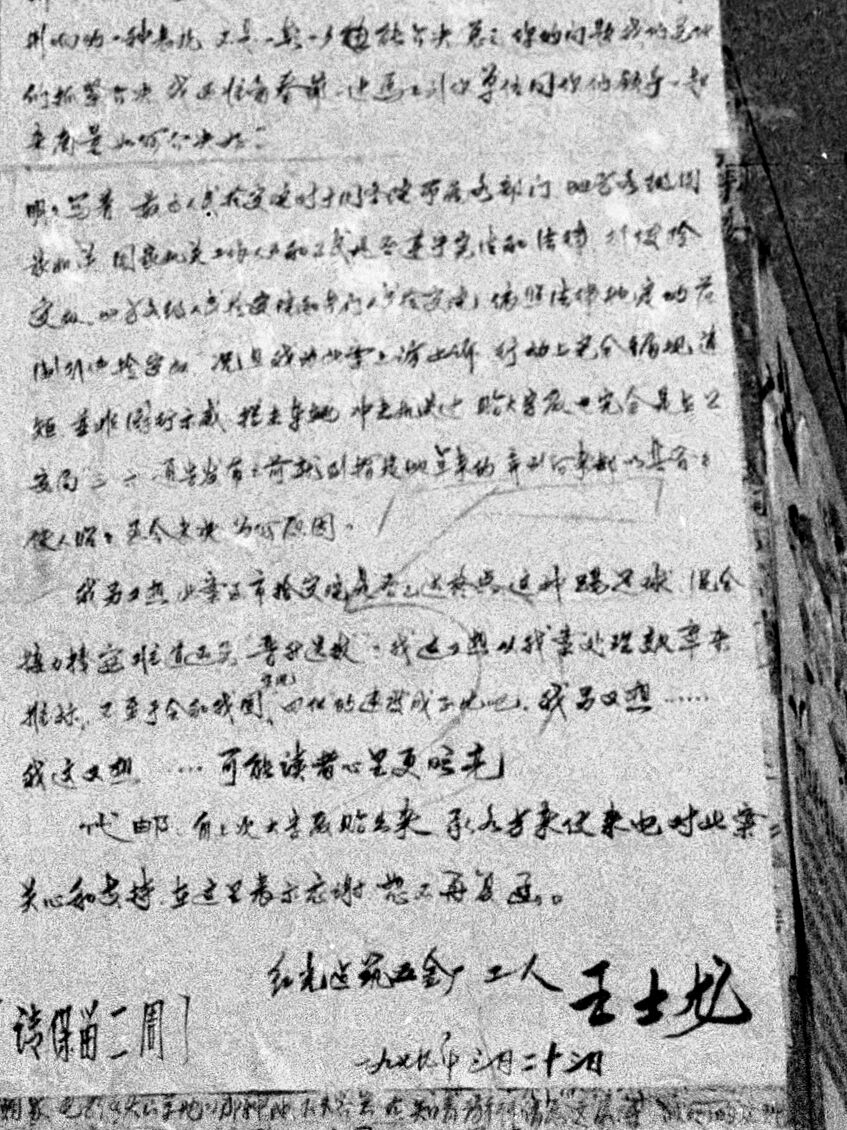
"Song of Love" and "Deep Pool Paper" ("Tan Bao")
Das "Song of Love" praises democracy and science and the "Four Modernizations" (industry, agriculture, military and science) promised by the reformists. For all this "I have to sacrifice my youth - mom, you need not worry".
The "Tan Bao" ("Deep Pool Paper" or "Deep Lake News") makes a somehow cryptical announcement of a debate on Wednesday, 7:40 p.m., on the topic "A strong people and a week state", saying "come please."
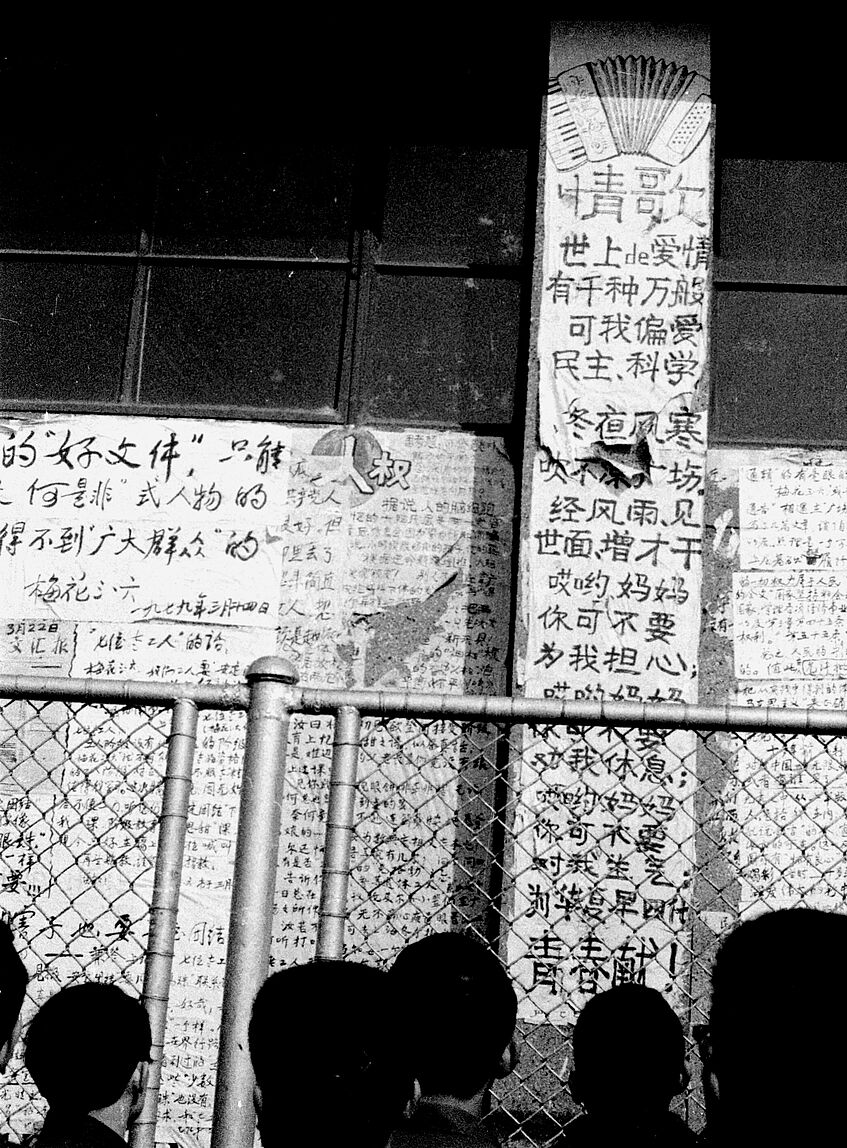
"Song of Love"
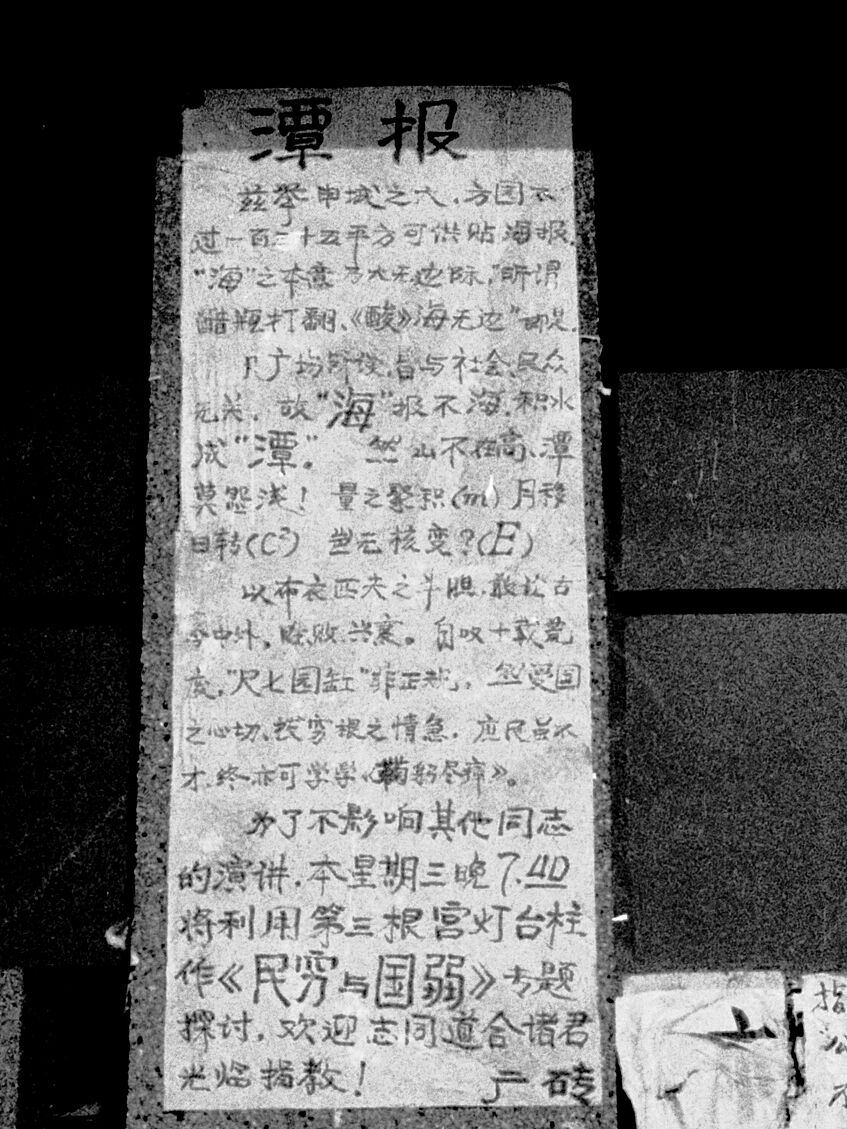
"Deep Pool Paper"
"Announcement by the Democracy Discussion Group, March 22, 1979"
The party historian Cheng Zhongyuan later describes this opposition group as such: "Some members call Chairman Mao a 'Hitler worse than Hitler', ... describing 'the dictatorship of the proletariat the source of all evil'; they demand 'strong and decisive criticism of the Chinese Communist Party', announcing that they prefer capitalism to socialism. ... Some even secretly contacted Chiang Kai-shek's spy organization and planned acts of sabotage." (in "Pivotal Years: China 1976-1981", Beijing 2008, in Chinese, p. 294)
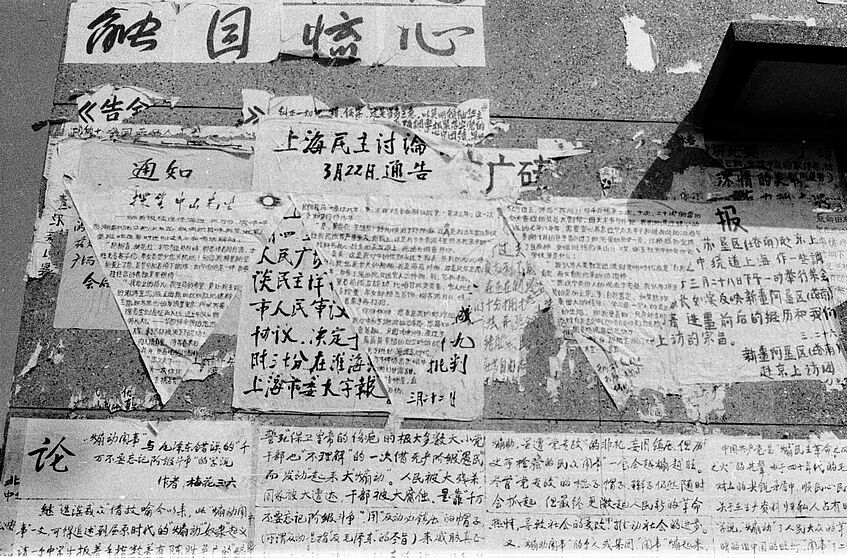
Fragment of an announcement by the Shanghai "Democracy Discussion Group", partly covered by another dazibao
Various Fragments
